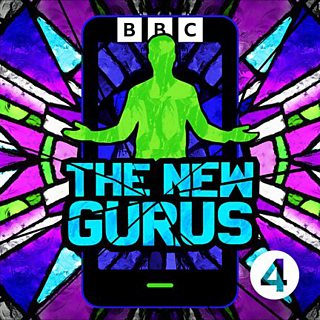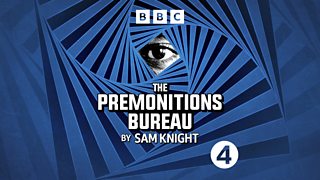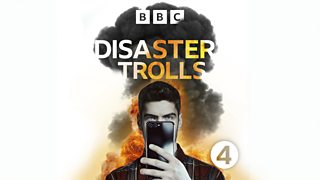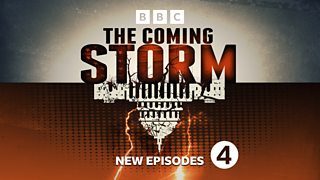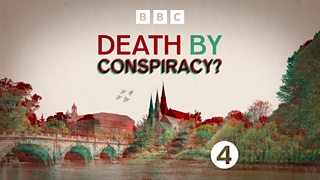Can internet gurus help you find certainty in an uncertain world?
From productivity hackers to dating coaches, from crypto bros to wellness influencers, when did the internet get taken over by gurus? Russell Brand, Steve Jobs and Jordan Peterson are a few of the figures mentioned in The New Gurus, a Βι¶ΉΤΌΕΔ Radio 4 podcast, which looks at the often-hidden worlds of online gurus – charismatic individuals whose devoted fan bases hang on their every word. These gurus tell us how to think. How to be productive. How to eat. How to find love. Above all, they provide certainty in an uncertain world, sometimes filling the gap left by the decline in traditional religious belief. After all, the 2021 census found that for the first time, less than half of Britons identify as Christian.
One of the themes explored in episode 8 of the podcast is how an uncertain future is making us turn from traditional avenues of solace – and towards astrology and others predicting the future.
Presenter Helen Lewis investigates…
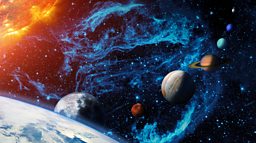
Jessica Lanyadoo is terrified of the future. She keeps food, water and medical supplies on hand at her home in the San Francisco Bay area, along with thyroid pills – which she plans to take if a nuclear bomb goes off.
When Neptune is in Aries, we tend to have civil wars.Jessica Lanyadoo
Lanyadoo is worried because she is an astrologer, and she sees disaster written in the stars. “When Neptune is in Aries, we tend to have civil wars,” she told me recently. And that planetary alignment will happen, she says, in March 2025 – around two months after the next U.S. president is inaugurated.
Now, there is no scientific basis for astrology: no one has ever explained how the movement of the planets might influence events, or why the position of Saturn at your birth would reveal anything about your personality. But that doesn’t stop millions of us seeking out online astrologers, as well as tarot readers and mediums. Some of the best-known have hundreds of thousands of subscribers on YouTube and TikTok, and can charge hundreds of pounds for a personal consultation.
“When there are times of uncertainty, and when things feel like they’re about to fall apart, is when people turn to spirituality,” Lanyadoo told me. “And we are in a period of time where people do not trust organised religion for a variety of reasons. And so turning to astrology makes more and more sense.”
An age of discord
And it’s not just the fortune-tellers who see trouble ahead. Peter Turchin is an impeccable rationalist – a “complexity scientist” affiliated to the University of Oxford. Having trained as a biologist, he took a sideways move in the 1990s, helping to found a new academic discipline called “cliodynamics.” That means he studies historical trends using statistical analysis. He is also pessimistic about the current decade, which he has nicknamed the “Turbulent Twenties.”

Turchin’s argument goes like this: every great civilisation in history, from the Roman Empire to Genghis Khan’s horde to the Chinese dynasties, has ended in collapse. So what makes this happen? Turchin believes that internal pressures are usually to blame – even if the barbarians end up storming the gates, it’s because the civilisation inside them has gone rotten. The U.S. and Europe have had a good run, but it’s now over. “We are in what I would call an age of discord,” he told me. “And hopefully it will not end in a bloody civil war.”
Perhaps you think this sounds alarmist. But Turchin says that people are now more open to his warnings than they were when he started to make his predictions – back in the more optimistic early 2010s. Confronted with the idea of extreme political turbulence, he says, some rich people start “prepping”, just like Jessica Lanyadoo. Notably, the tech evangelists – the people with the best idea how breakthroughs like artificial intelligence might change society – are some of the most keen to be prepared if civilization collapses. In 2011, for example, the PayPal billionaire Peter Thiel citizenship of New Zealand – a country often touted as a safe haven in the event of a world war – while Silicon Valley superstars Steve Huffman and Yishan Wong have both , in case there are no more opticians after the apocalypse.

Are we all doomed?
Another group who are equally pessimistic about the future have taken a different approach – instead of worrying, they claim to be resigned to the end of the world. They call themselves “doomers” and they see human extinction as a relief. One prominent doomer, the retired maths professor Eliot Jacobson, describes himself as a “nihilist and a misanthrope,” and he has found solace – and thousands of followers – by preaching that we should accept our fate. “Our responsibility as stewards of the planet is to do everything we can in the short time remaining, to leave it in the best possible shape for whatever comes next,” he told the Βι¶ΉΤΌΕΔ.
Our responsibility as stewards of the planet is to leave it in the best possible shape for whatever comes next.Eliot Jacobson
Odd as it sounds, I can understand the appeal of joining the Doomers. If the worst is going to happen, then at least we know the future. The uncertainty is gone. Researching this series, I was surprised by how many cultures and groups have their own fortune-tellers, from the hyper-rational superforecasters beloved by political adviser Dominic Cummings – who test their predictions against actual events – to the shamans of traditional tribes like the Mapuche people in Chile. In between those two groups come meteorologists, fashion trend forecasters, stock market pickers – even the racing tips on the Today programme.
Predicting the future gives us a sense of control over an uncontrollable world. If these are the “Turbulent Twenties,” then no wonder that future-gazing gurus are so popular.
Listen to The New Gurus, written and presented by Helen Lewis, on Βι¶ΉΤΌΕΔ Sounds
More from Βι¶ΉΤΌΕΔ Radio 4
-
![]()
The Premonitions Bureau
The story of the true reported premonitions of disasters in the 1960s.
-
![]()
Disaster Trolls
What happens when tragedy makes you a target? Marianna Spring investigates.
-
![]()
The Coming Storm
Reporter and presenter Gabriel Gatehouse investigates QAnon.
-
![]()
Death by Conspiracy?
Marianna Spring investigates the story of Gary Matthews, a conspiracy theorist who died of Covid.
